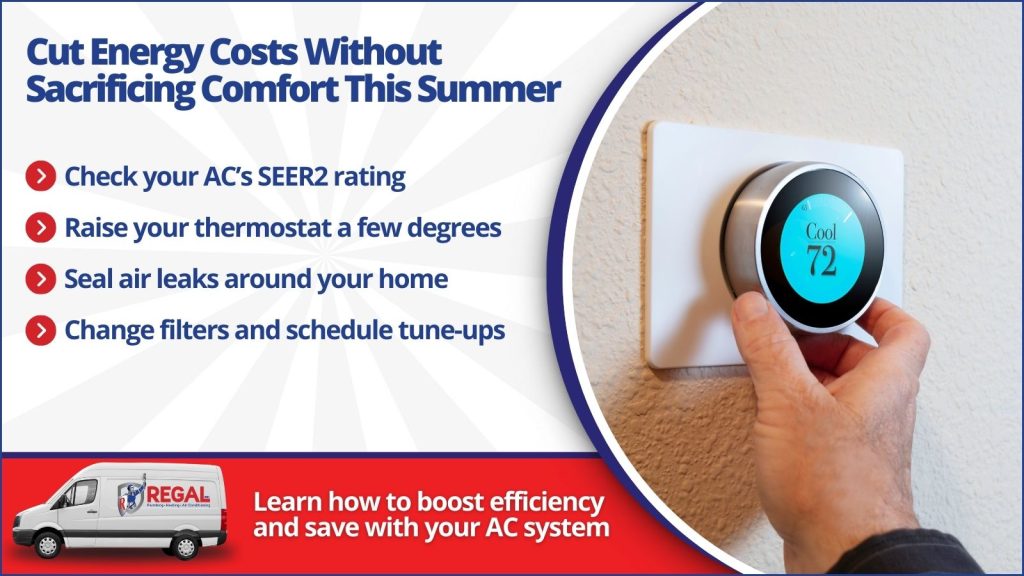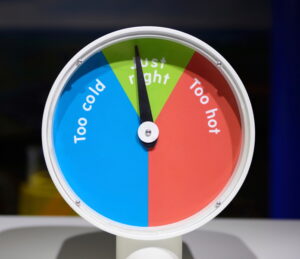As temperatures rise, so does your home’s energy usage—especially when it comes to air conditioning. For most households, the AC is one of the largest contributors to summer energy bills. But with a better understanding of how energy consumption works, and a few smart strategies for improving efficiency, you can enjoy a cool, comfortable home without draining your wallet.
Let’s take a closer look at the factors that affect AC energy use, tips for reducing consumption, and how to interpret your utility bill so you can take control of your costs this season.

What Affects AC Energy Usage?
Several variables impact how much energy your air conditioner uses. Understanding these factors can help you identify where efficiency improvements are needed.
1. System Age and SEER2 Rating
The Seasonal Energy Efficiency Ratio 2 (SEER2) measures how efficiently an AC unit cools a space. Older systems tend to have lower SEER ratings (typically 10–13), while modern units often have SEER2 ratings of 15 or higher. The higher the rating, the less energy the system uses to provide the same level of cooling.
2. Thermostat Settings
Setting your thermostat too low can drastically increase your AC’s energy use. For each degree you lower the thermostat below 78°F, energy consumption can increase by 6–8%. Finding a comfortable yet efficient temperature setting is key to reducing costs.
3. Home Insulation and Sealing
If your home is poorly insulated or has air leaks, your AC will need to run more frequently to maintain indoor temperatures. Proper insulation, sealed ductwork, and energy-efficient windows all reduce the strain on your system.
4. Maintenance and Airflow
A system that hasn’t been maintained will lose efficiency over time. Dirty coils, clogged filters, and blocked vents can restrict airflow and force your AC to work harder, using more energy to produce the same results.
Tips to Maximize AC Efficiency
To keep your system running smoothly and your bills in check, consider these energy-saving tips:
- Schedule an annual AC tune-up to ensure your unit is running at peak performance. A technician will clean and inspect critical components, check refrigerant levels, and make necessary adjustments.
- Change your air filter every 1–3 months. A clogged filter restricts airflow and reduces efficiency.
- Use ceiling fans to circulate cool air and make rooms feel cooler without adjusting the thermostat.
- Install a programmable or smart thermostat to better control your cooling schedule and avoid unnecessary usage when you’re not home.
- Close curtains or blinds during the hottest parts of the day to keep the sun from heating your indoor space.
- Seal windows, doors, and ductwork to prevent cool air from escaping.
Understanding Your Utility Bill
Your electric bill typically breaks down your energy usage in kilowatt-hours (kWh), which is how much energy you use over time. During the summer, a significant portion of your usage will likely come from your AC system.
Some utility providers offer detailed usage reports that show energy consumption by time of day or specific appliances. This information can help you identify peak usage periods and adjust accordingly—for example, by running your AC less during peak rate hours if you’re on a time-of-use plan.
Contact Regal Plumbing, Heating and AC to schedule an appointment for professional AC service. Committed to Service, Committed to You, Since 1974.

